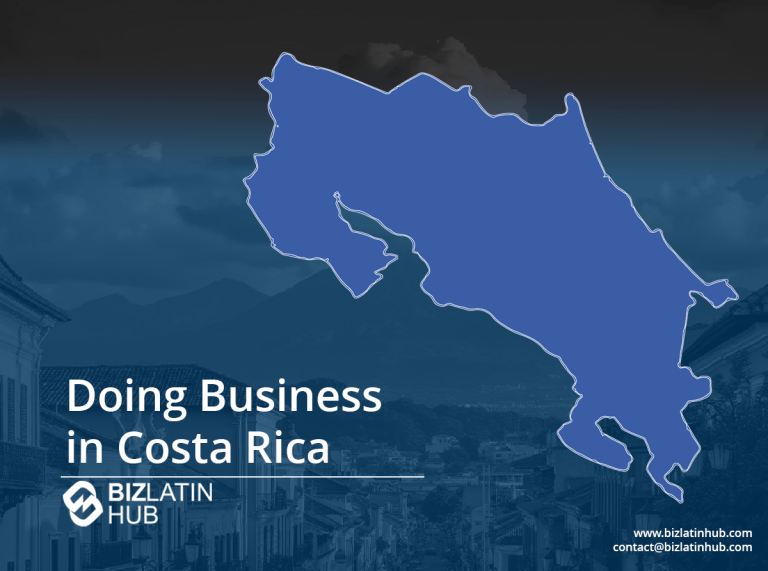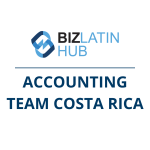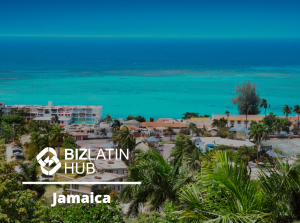Inevitable though they might be, taxes do not have to be scary. For international investors considering company formation in Costa Rica, it makes sense to consult taxation professionals to make sure you are within the law of the land. That’s where you need to look at tax advisory services in Costa Rica.
As the country’s economy grows, it is naturally attracting more and more international interest. Along with that comes increasing professionalism and more necessity for tax advisory services in Costa Rica. While the country is broadly in line with global norms, there are some local specifics that you should understand.
At Biz Latin Hub, we know all about tax advisory services in Costa Rica, thanks to our dedicated local office in the country. Not only that, but our market leading array of back-office services can give you ongoing support in all fields. With our team in your corner, you can relax in the knowledge you’re fully compliant and focus on what you do best – growing your business.
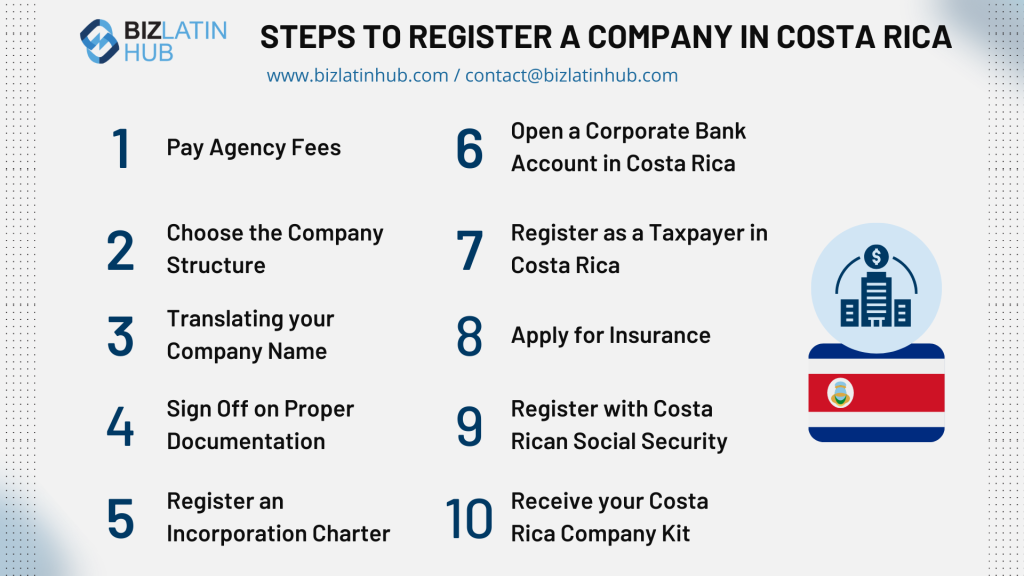
What are the main 4 tax advisory services to be considered in Costa Rica?
Generally speaking, the four most important services that international investors are looking for in Costa Rica are the following:
- Tax Planning
- International Taxation
- Corporate Taxation
- Tax Controversy and Dispute Resolution
Tax Planning
This involves looking for and then taking advantage of, schemes and incentives for certain industries and/or regions. In Costa Rica, these are generally found in the extensive Free Trade Zone scheme that operates countrywide.
Costa Rica’s Free Trade Zone scheme grants beneficiary companies a wide range of benefits, including:
- Full exemption on import duties on raw materials, machine components and other goods for up to 12 years.
- Full exemption on corporate income tax.
- Full income tax exemption for an eight-to-10-year period.
- Tax exemptions on domestic purchases of goods and services.
- Full exemption on export taxes, local sales tax and VAT.
- No restrictions on capital/profit repatriation or foreign currency management.
- Expedited on-site customs clearance.
- Possibility to sell to exporters within Costa Rica.
The zones are overseen by the export organization PROCOMER, which is part of the Costa Rican Ministry of Foreign Trade. However, there are some pre requisites for companies to operate in these zones:
- A minimum investment requirement of between USD$100,000 and USD$2,000,000 depending on the company’s location and type of economic activity.
- Minimum of USD$10 million investment for commercial activity deemed to be a megaproject, regardless of the location.
- Employment of at least 15 employees on payroll. Manufacturing companies require maintaining a minimum of at least 200 employees on the payroll at the start of productive operations. Megaprojects must maintain at least 100 employees on the payroll.
- All companies must keep detailed and accurate records of the operations of the company related to the goods they produce or handle.
- Payment of monthly fee to the Foreign Trade Agency of Costa Rica, starting at $200 USD and going up, according to the type of company operating in an FTZ.
- Companies submit an annual report proving that the entity is fulfilling all the rules and regulations outlined in the Free Trade Zone guide.
- A fixed assets book and policy must be kept at hand and updated on a monthly basis.
International Taxation
This involves looking at how a legal entity in Costa Rica will interact with businesses in other countries, or to investors and shareholders abroad. Here we are mainly talking about withholding taxes and double taxation agreements.
Dividends paid to a person or company outside Costa Rica incur a tax of 15%, with exceptions for German, Mexican or Spanish companies in some cases. There are a range of other taxes depending on other services that go outside of the country.
The country only levies taxes on income earned within the territory, not outside. Double taxation treaties that Costa Rica has are with Germany, Mexico and Spain. This means that those countries will not tax you on income earned within Costa Rica. For other countries, it is worth double checking with your local tax office.
Corporate Taxation in Costa Rica
Company structure may significantly affect tax liabilities and responsibilities. That’s why it’s necessary to consider the correct set-up for your organization, depending on what exactly you want to do in the country, how large your company is and if you will be working internationally.
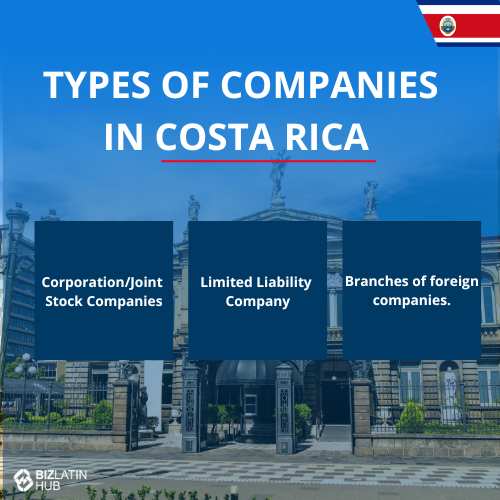
Companies that do not declare activity declare income at zero or less than 120 base salaries, approximately $102,800. They pay 25% of the base salary (approx. USD$214).
Companies with gross income between 120 and 280 base salaries pay 30% of the base salary (approx. USD$257).Companies with gross income of more than 280 base salaries pay 50% of the base salary (approx. USD$428).
The generating event of the tax on profits is the perception or accrual of income in money or in kind, continuous or occasional, from lucrative activities of Costa Rican source, as well as any other income or benefit of Costa Rican source not exempted by law. Payment of this tax is made in 3 quarterly installments – in June, September, and December. The payment is made by taking an average of the last 3 fiscal periods.
- 5%: The first five million seven hundred sixty-one thousand colones (₡5,761,000) / (USD$10,678) of annual net income.
- 10%: Over the excess of five million seven hundred sixty-one thousand colones (₡5,761,000) / (USD$10,678) and up to eight million six hundred forty-three thousand colons (₡8,643,000) / ($USD16,019) of net income.
- 15%: Over the excess of eight million six hundred forty-three thousand colones (₡8,643,000) / (USD$16,019) and up to eleven million five hundred twenty-four thousand colones (₡11,524,000) / (USD$21,359) of annual net income.
- 20%: On the excess of eleven million five hundred twenty-four thousand colones (₡11,524,000) / (USD$21,359) of annual net income.
- 30%: Legal entities whose gross income exceeds ₡122,145,000,000 / USD$226,383,097, must apply a fixed tax rate.
VAT in Costa Rica is an indirect tax that falls on consumption, which means that when a person (customer) purchases a good or service, they are paying this tax at a general rate of 13% or one of the reduced rates of 4%, 2%, 1% or 0.5% that applies to certain exemptions.
Tax Controversy and Dispute Resolution
While most of this is relatively straightforward and unlikely to present issues, from time to time disputes and errors can occur. That’s where you will really need good tax advisory services. First off, you need to know who the relevant authority is, which is is called the Ministerio de Hacienda in Costa Rica. Related to this are audits, which can help identify problems before they occur.
The Ministerio de Hacienda has a well established system for handling disputes and queries, as well as significant powers for dealing with cases of tax evasion. If you are a large taxpayer who may be showing irregularities, you run more risk of being subjected to an external audit by the Ministerio.
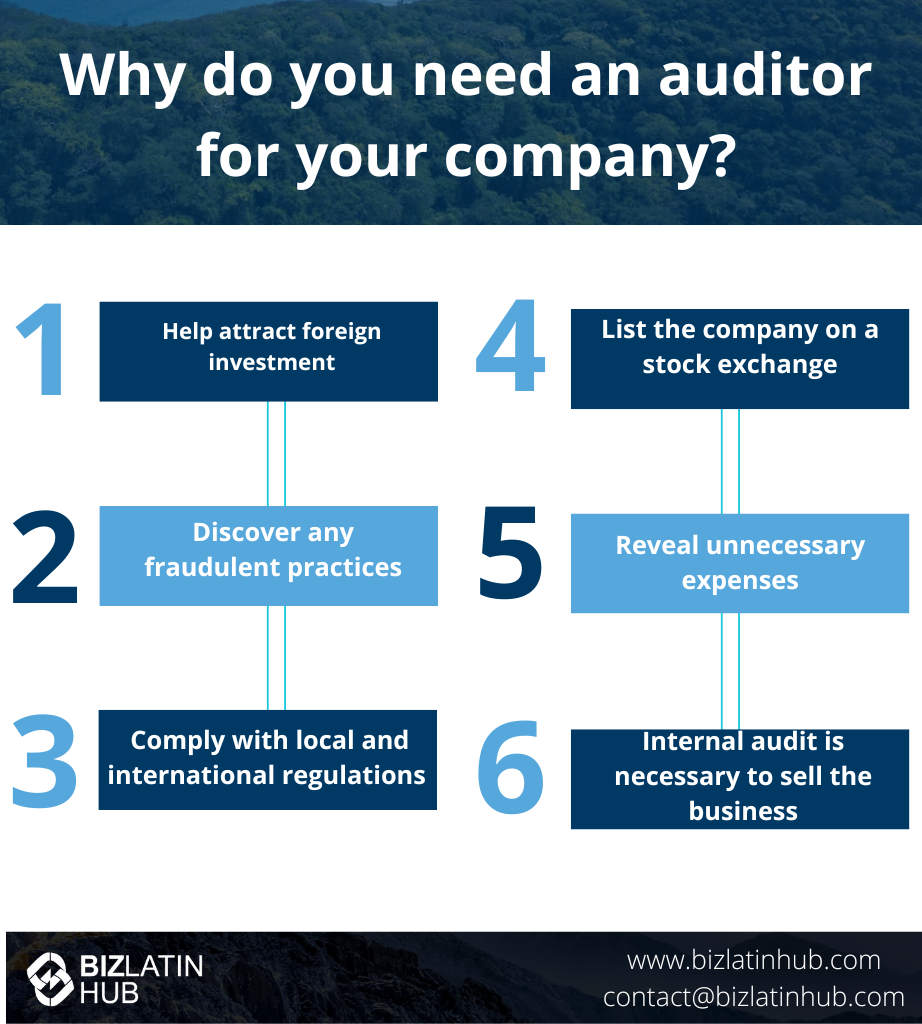
External audits can help with this, as they are designed to evaluate the company thoroughly and nip any potential problems in the bud. However, there are specific local laws and fiscal requirements when registering a new corporation in Costa Rica. As per the Costa Rican Commercial Code, every corporation must designate a Fiscal, who acts as an internal auditor.
The Fiscal can be a member of the Board of Directors, but they don’t need to hold that position. The primary responsibility of the Fiscal is to supervise and protect the shareholders’ investment. So, there is a need for your business to have a designated auditor in Costa Rica. It is also important to note that the Commercial Code mandates that accounting records must be kept in Spanish.
FAQs on tax advisory services in Costa Rica
A tax advisory service is a specialized offering where tax professionals guide clients in tax planning and compliance. They ensure accurate tax filing, optimal utilization of tax deductions and credits, and legal tax savings.
International tax law comprises regulations that govern taxation for individuals and businesses with international operations. These laws cover various taxes, including income, corporate, capital gains, estate, and gift taxes. Countries establish their tax rates and rules, which can differ significantly based on the type of business activity.
A tax advisor can help you understand tax laws, save money, and avoid potential legal issues related to taxation.
In Costa Rica, these are generally found in the extensive Free Trade Zone scheme that operates countrywide.
Costa Rica’s Free Trade Zone scheme grants beneficiary companies a wide range of benefits, including:
Full exemption on import duties on raw materials, machine components and other goods for up to 12 years.
Full exemption on corporate income tax.
Full income tax exemption for an eight-to-10-year period.
Tax exemptions on domestic purchases of goods and services.
Full exemption on export taxes, local sales tax and VAT.
No restrictions on capital/profit repatriation or foreign currency management.
Expedited on-site customs clearance.
Possibility to sell to exporters within Costa Rica.
The Ministerio de Hacienda.
Biz Latin Hub can provide tax advisory services in Costa Rica
At Biz Latin Hub, we provide integrated market entry and back-office services throughout Latin America and the Caribbean, with 18 offices in major cities across the region. We also have trusted partners in many other markets.
Our unrivaled reach means we are ideally placed to support multi-jurisdiction market entries and cross border operations.
As well as knowledge of tax advisory services in Costa Rica, our portfolio of services includes hiring & PEO, ongoing accounting & taxation, company formation, bank account opening, and corporate legal services.
Contact us today to find out more about how we can assist you in finding top talent, or otherwise do business in Latin America and the Caribbean. Or read about our team and expert authors.

